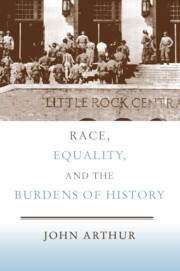3 - Slavery
Published online by Cambridge University Press: 03 December 2009
Summary
slavery, and the racial oppression that followed in its wake, left a scar on American history whose consequences linger to this day. Before examining the policies designed to respond to that history, it will be helpful in this chapter to explore the history and nature of slavery itself. The institution was deeply controversial from the beginning of the United States, when debates over provisions to protect the African slave trade were among the most vitriolic of the constitutional convention. Those disagreements lasted as long as slavery did, eventually contributing to the bloodiest and most costly war in U.S. history. Not only were the contemporary arguments over the morality of slavery interesting in their own right, but they also provide important background to the following chapter on racial equality.
A brief history of slavery
Slavery has been a pervasive feature throughout most of human history, in almost all societies. Egyptians, Persians, Chinese, Israelites, Babylonians, Greeks, Romans, Russians, Native Americans, and Africans all practiced slavery. The word “slave” originated from the word “Slav” after Southern Europeans had enslaved so many Slavic people that the two ideas acquired the same meaning. According to one historian, slavery has been “universal” in two senses: “Most settled societies incorporated the institution into their social structures, and few peoples in the world have not constituted a major source of slaves at one time or another.” It existed in North and South America before Columbus as well as in Southern and Eastern Asia, Europe, and Africa.
- Type
- Chapter
- Information
- Race, Equality, and the Burdens of History , pp. 89 - 121Publisher: Cambridge University PressPrint publication year: 2007

